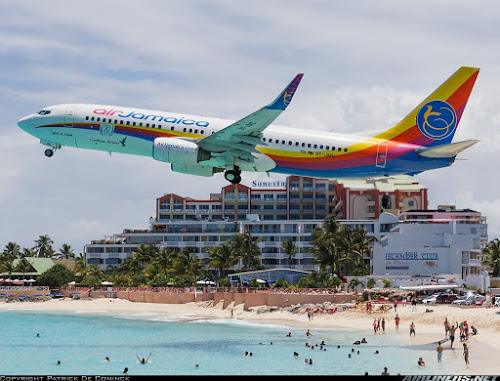Ahh Jamaica, what a gorgeous place to be. You have probably completed everything on your checklist now that you have arrived in Jamaica. What else is there to do about Jamaica, or to know? You already know the history, the culture, in most situations, and you've already taken your first trip to Jamaica. The next thing in Jamaica is to really enjoy the people, the festivals, and all the other small festivities.
Celebrations in Jamaica are the greatest, often significant and include various types of rituals as well. Jamaican Christmas, Boxing Day, New Year's Day, Easter, Independence Day and so on are examples. A wonderful time to be in Jamaica is Christmas. There is a bustling combination of religious and secular practices, as in most western societies. Houses are decorated and Christmas trees are being put up by several people. Many who don't often indulge themselves somewhere in their yards by stringing a few pepper lights.


A Jamaican Christmas
There is a Tree Lighting Ritual in many cultures in which a Christmas tree erected in a central location is formally lit. Businesses and charitable groups host youth, the elderly and the poor with care. There are festivals, dances and street jams all through December, concluding on Christmas Eve in most major towns. This night, called 'Grand Market' night, Jamaicans of all ages meet to socialize, eat, drink, dance and have fun in the city centers.
Children are given more freedom on the Grand Market night, they stay out late, walk the streets, and are always treated to the toys of their choosing. There's music everywhere. Starting from early in the day, street vendors selling food, toys and gifts set up their stalls in any available space. The party lasts until dawn, punctuated with the sound of firecrackers, even though they are strictly illegal.


On Christmas Day, families get together, and many Jamaicans go to church, even some of them who have been partying all night. Traditional western carols (e.g. Joy to the World, O Come All Ye Faithful) are popular, as are Caribbean Christmas songs (Sing de Chorus Clap You Han). Christmas dinner can include ham, roast chicken, rice and peas. Gifts are exchanged, and while Santa Claus can visit a few children, it is not commonly believed.
With New Year's Eve celebrations, and a second Open House round on New Year's Day, the festivities are rounded off. Then January arrives, and after the greatest of Jamaican celebrations, everyone is either broke or tired.
Jamaican Easter
Easter is by no means as large or as extended as Christmas, as Jamaican celebrations go. Forty days of Lent precede it, during which some Jamaicans abstain from their favorite indulgences. Most give up consuming beer, eating pork, or eating meat entirely. As a result, more fish, particularly on Good Friday, which is a fast day for the more religious, tend to be eaten during Lent. In the Easter season, the bun and cheese are a must for Jamaicans, and the store shelves are filled with Easter buns of all sizes. Anyone traveling overseas to visit friends or relatives had better turn up with an Easter bun, or they can't enjoy their happy Easter holiday.

Most cultures have their carnival activities prior to Carnival stages, but the carnival in Jamaica is different. Inaugurated in 1990 by legendary Jamaican singer and bandleader Byron Lee in Jamaica, the Jamaica Carnival 's leading activities take place during Loans. On Easter Sunday, the week of carnival begins. In this overwhelmingly Christian community, it has been difficult for many to digest such secular practices during the Lent and Easter Sundays. But as time passed, as one of the most vibrant festivals in Jamaica, the carnival was embraced by many and tolerated reluctantly by others.

I know this detail sounds daunting, but one of the most iconic celebrations in Jamaica is their independence day. Each year, on August 6, 1962, in commemoration of its first Independence Day, Jamaica celebrates its independence. The time leading up to public holidays is full of parties and activities that celebrate the culture of the island. Following the reintroduction in 1997 of another public holiday on 1 August, the Day of Liberation, these Jamaican celebrations became even more marked. The day the slaves were given full liberty in 1838 is remembered for this holiday.
Government agencies are spearheading many of the Independence Day celebrations. The extent of such events depends, therefore, on how capable and willing the government is to invest. Street dances and parties at home and outdoor venues are popular at the neighborhood level. Over the summer, many Jamaicans return from abroad to visit their homes, making it the perfect time to party and meet old friends.
In my opinion : When it comes to the Jamaica party, they're ready to go out and make any celebration very special, and it's fair to say at this point that nothing can stop anyone visiting Jamaica.
Sources
Newyork, Amny. “Stories behind Impressive Christmas Lights in Queens and Brooklyn.” AMNY, 18 Dec.
2014,
cdn.newsday.com/polopoly_fs/1.9728094.1418933990!/httpImage/image.JPG_gen/derivatives/
display_10
04/image.JPG.
lyn, Wade. “Christmas In Jamaica.” Island Delight , 7 Dec. 2016, www.island-delight.co.uk/wp-
content/uploads/2016/12/Island-Christmas-In-Jamaica-Blog-Image-1.1.jpg.
“Easter & Growing up in Jamaica.” Caribbean National Weekly , 30 Mar. 2018,
www.exceptionalvillas.com/public/upload/gimages_resize/w750xh442-market-ocho-rios.jpg.
“Happy Jamaican Independence Day 2019: How the Iconic Caribbean Island Got Its Flag.” Evening
Standard , 6 Aug. 2019, static.standard.co.uk/s3fs-public/thumbnails/image/2018/08/06/13/jamaica-
2131252-1920.jpg.
eskipaper.com/images/jamaica-13.jpg.










Comments
Post a Comment